 PDA
Application Walkthrough
PDA
Application Walkthrough PDA
Application Walkthrough
PDA
Application WalkthroughKyle Cordes
Oasis Digital Solutions Inc.
August 2003
I created a simple desktop Delphi application to set up questions, arrange inspections, and view results. In the production system for the real project, these features are provided by new screen on our client's existing, larger system, though technically they could reside in a separate application as shown here.
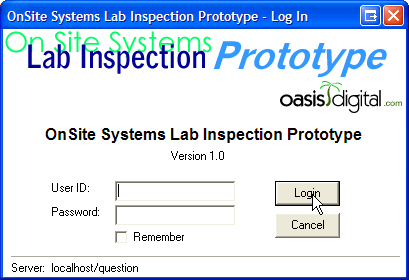 |
The usual login screen. This connects to a MySQL database. MySQL is handy appropriate for prototype development as it is easy to use, a small download, fast, free (for many purposes), etc. |
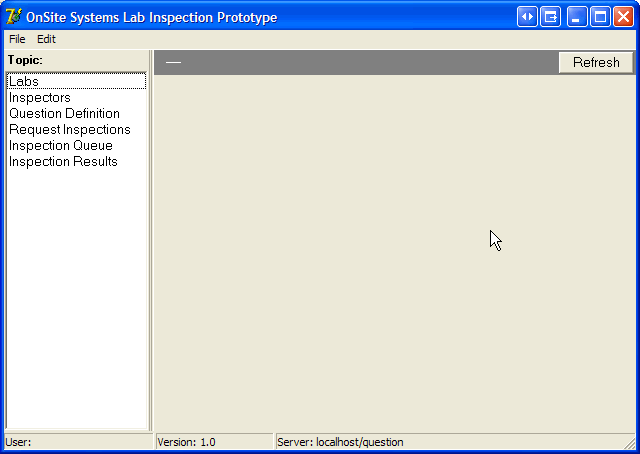 |
The navigation is functional but not much to look at. In real applications, I sometimes use an "Outlook-style" bar on the left. |
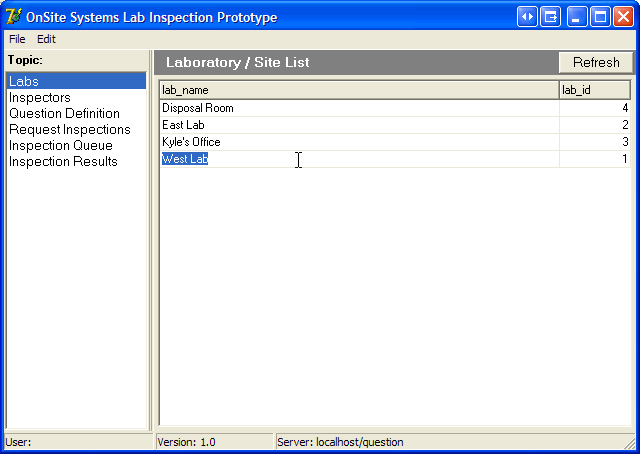 |
This is the list of labs / sites. A newer version of this prototype, not shown here, categorizes the lab/site list according to the researches / investigator responsible for it. |
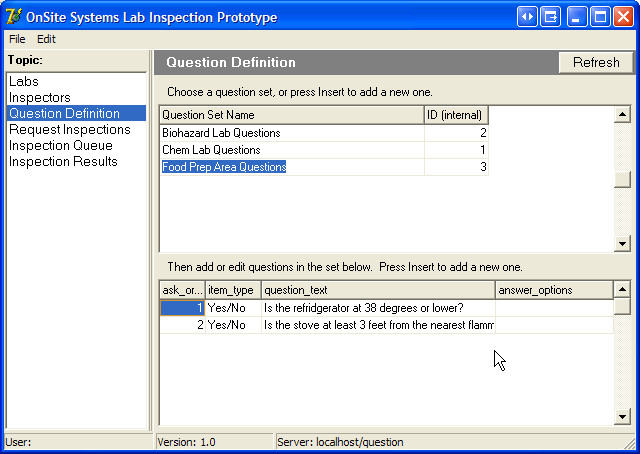 |
The prototype supports mutliple sets of questions. In this screen, the user is editing the list of questions for the "Food Prep Area Questions" set. |
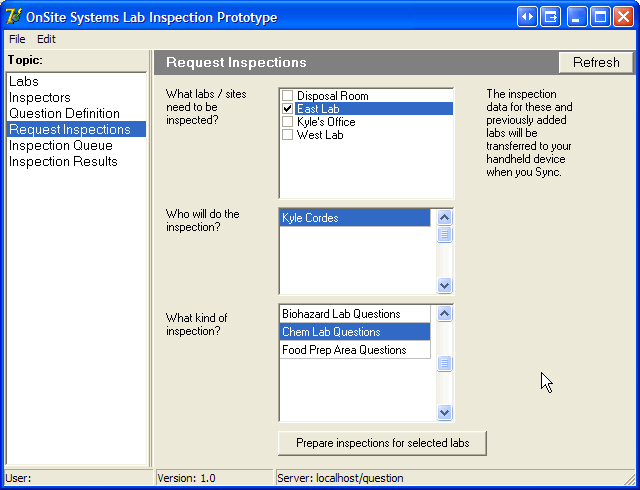 |
Having entered labs and questions, the user selects some labs, chooses which set of questions apply, and which inspector will check them. A larger application might have some kind of rules to make this simpler; for example, there could be a default set of questions for each site, and there could be a way to schedule each site for inspections every N months. That wouldn't affect the PDA application at all, of course. |
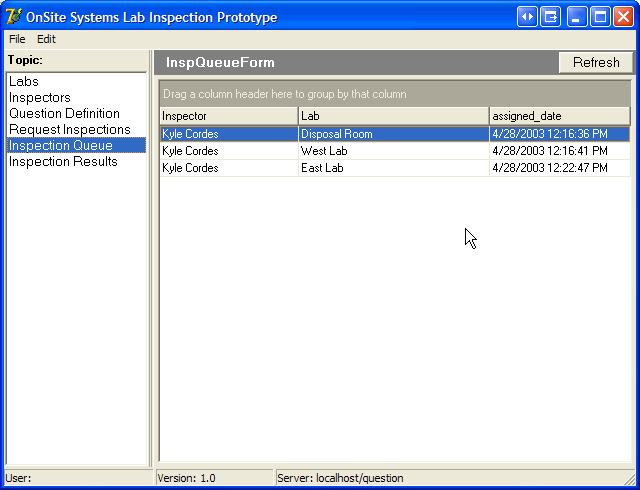 |
This screen shows that the inspector Kyle Cordes has three inspections to do.
At this point, the data was syncronized to the PDA application (Palm or Pocket PC), then the inspections were done, then the results syncronized back to the PC. |
|
|
This is a very rough prototype screen, but it shows the answers (yes/no) and a bit of text of a violation. Our customer's real application has extensive reporting capabilities, so simply demonstrating that the data from the PDA ends up the right place in the database was quite sufficient for this prototype. A more complex application could set things up so that once the inspection is done, another is scheduled for a later date. |